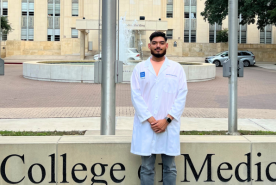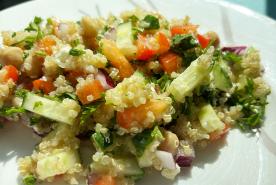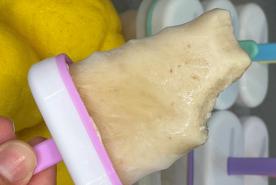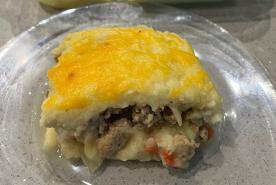Last Updated: March 18, 2024
Medically reviewed by NKF Patient Education Team
Importance of Good Nutrition for People with Chronic Kidney Disease
Making healthy food choices is important to us all, and especially if you have chronic kidney disease (CKD). Good nutrition helps:
- Slow down the progression of kidney disease
- Provide energy to do your daily tasks
- Prevent infection
- Maintain muscle mass and strength
- Maintain a healthy weight
There is not only one correct eating plan for everyone with kidney disease. What you can or cannot eat may change over time, depending on your kidney function and other factors.
Changes to My Diet
Your kidneys help keep the right balance of nutrients and minerals in your body. But if you have kidney disease, your kidneys may not do this job very well. You may need to make some changes to your diet.
There is not only one correct eating plan for everyone with kidney disease. What you can or cannot eat may change over time, depending on your kidney function and other factors. If you are following a certain eating plan for diabetes or heart disease, you will continue to do so. What is good for your diabetes and heart is good for your kidney. A kidney dietitian will help you combine these eating plans.
Registered dietitians and kidney disease
Ask your doctor about meeting with a Registered Dietitian with special training in kidney disease.
A dietitian can:
- Teach you to make the best food choices based on your lifestyle and lab tests
- Help to make changes in your diet to help you better control diabetes and high blood pressure
- Help you to keep your kidney disease from getting worse
Meeting with a dietitian is a service covered by Medicare and may also be covered by other types of insurance. You may need to call your insurance provider to see if your plan covers meeting with a dietitian.
Are you looking for nutrition guidance? Contact a CKD dietitian in your area. CKD Kidney Dietitian Directory
Nutrients to manage in chronic kidney disease
People with CKD may need to control the amount or type of one or more nutrients:
- Sodium
- Potassium
- Phosphorus
- Calcium
- Protein
Eating the right amount or type of one or more of these nutrients may help control the buildup of waste and fluid in your blood. This means your kidneys do not have to work as hard to remove the extra waste and fluid. If your kidney disease gets worse, you may need to limit other nutrients as well. Your dietitian or healthcare provider will tell you if you need to do this based on your blood test results.
Sodium and your CKD Diet: How to Spice Up Your Cooking
Healthy kidneys control how much sodium is in your body. If your kidneys do not work well, too much sodium can cause fluid buildup, swelling, higher blood pressure, and strain on your heart. Your dietitian or healthcare provider can tell you the right amount of sodium you should have each day.
Potassium
Potassium is important for muscle function, including the heart muscle. Too much or too little potassium in the blood can be very dangerous. The amount of potassium you need is based on how well your kidneys are working and your medications. Your dietitian or healthcare provider can tell you about foods with potassium and the right amount for you to eat each day.
Potassium from animal foods is absorbed at a higher rate than potassium from plants. Elevated blood sugars can also increase potassium levels. Some high-potassium foods include milk, meat, bananas, oranges and orange juice, cantaloupe, dried fruits, winter squash and salt substitutes.
Phosphorus and Your Diet
As kidney function gets lower, extra phosphorus can start building up in the blood. High phosphorus levels can cause bones to get weaker. Your dietitian or healthcare provider can tell you if you need to limit goods that are high in phosphorus.
High phosphorus foods include dairy products, organ meats, colas, deli meats, and processed foods with phosphate additives.
Avoid processed foods that have additives with PHOS like disodium PHOSphate. You can find these additives in the ingredients list on food labels.
Calcium
Foods that are good sources of calcium are often high in phosphorus. Your dietitian or healthcare provider will tell you if you need to limit calcium. Before taking any over-the-counter vitamin D or calcium supplements, talk to your healthcare provider.
Protein
Your body needs protein to help build muscle, repair tissue, and fight infection. Plant-based protein like beans and nuts are easier on the kidneys than animal proteins like meat and dairy products. This is because plant proteins produce less acid in the body than meat proteins. More acid in body can damage the kidneys.
Having very large amounts of protein, especially in the form of unnecessary supplements, can be stressful on the kidneys. But if protein intake is too low, you can lose muscle mass, become weak, and increase the body’s acid load, so it is important to eat the right amount each day. The amount of protein you need is based on:
- Your weight
- Your age – growing children and adolescents, and older people, need more protein
- The amount of protein in your urine, and depending on your type of kidney disease
- Your dietitian or healthcare provider can tell you how much protein you should eat.
Fluids
The Dos and Don'ts of Fluid Management in Chronic Kidney Disease
Most people in the early stages of kidney disease do not need to limit how much fluid they drink. If you do not know your stage of kidney disease, ask your healthcare provider. If your kidney disease worsens, your dietitian or healthcare provider can let you know if you need to limit fluids and how much to drink each day. Fluids may need to be limited based on how much urine you make each day, and if fluid build-up in your body is causing swelling or stress on your heart or lungs.
Fluids include any food that is liquid at room temperature such as beverages, soups, gelatin, frozen desserts, and ice.
Calories
Every person is different in terms of the calories they need each day. Calories are like fuel. If you don’t eat enough, your body will take protein from the muscles for energy. It’s important to make sure you get the right number of calories. If you don’t, you may get weak and damage your kidneys. Eating the right number of calories will:
- Help you stay at a healthy weight
- Give you the energy to do your daily tasks
- Help your body use the protein in food to build muscle and tissues
Too many calories can cause extra weight gain, which can burden the kidneys. If you are overweight, some weight loss may be helpful. If weight loss is desired or you have diabetes, you should meet with a dietitian to set up a plan based on your kidney blood tests, current food choices, and daily activities.
Vitamins and Minerals
Vitamins and Minerals in Chronic Kidney Disease
Most people get enough vitamins and minerals to stay healthy by eating a variety of foods each day. But kidney patients may need to limit some of these foods. If so, you may need to take special vitamin or mineral supplements, but only if a dietitian or healthcare provider tells you to. Some vitamins or mineral supplements may be harmful to people with kidney disease. You should check with your healthcare provider before taking any medications you can buy without a prescription. Some supplements may be harmful to people with kidney disease. Over the counter vitamin and mineral supplements may contain too much phosphorous and potassium. You should also avoid taking herbal supplements.
Questions for your healthcare team
- What type of diet is best for my individual needs?
- Can you refer me to a registered dietitian nutritionist (RDN) who is an expert in kidney disease?
- If I need a vitamin and mineral supplement, can you prescribe one that is covered by Medicare or Medicaid?
- Can you check my blood to see if my acid level is too high? If it’s too high, how can I change my diet to help lower the acid?
- Where can I find financial and other support in getting healthy foods and meals for people with CKD?
- Am I getting enough protein in my diet to maintain my muscle mass?











